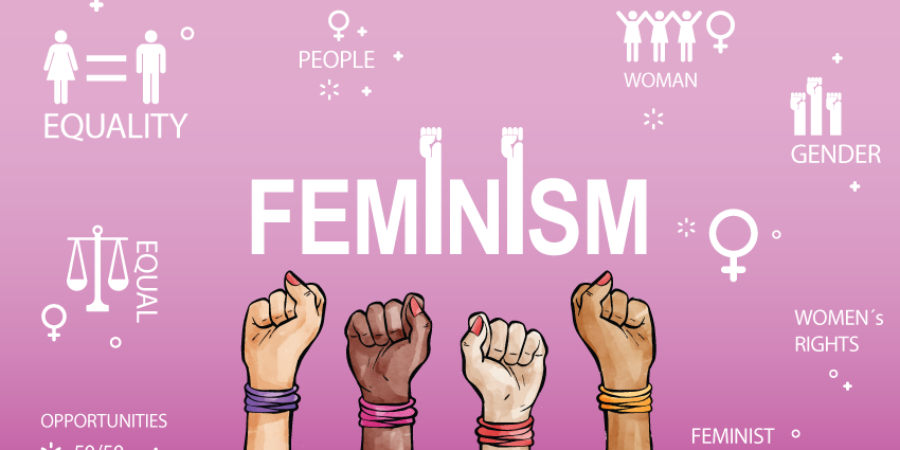

Feminism is an interdisciplinary approach to issues of equality and equity based on gender, gender expression, gender identity, sex, and sexuality as understood through social theories and political activism. Historically, feminism has evolved from the critical examination of inequality between the sexes to a more nuanced focus on the social and performative constructions of gender and sexuality.
A significant gap between self-identification and public expression of feminist beliefs among men. While a substantial percentage of men (37%) across 32 countries agree with the feminist label when asked in a survey, only a small fraction (6%) are comfortable or willing to openly share this identity with others. This disparity may stem from various factors, such as societal pressures, stigmas associated with the term "feminist," or fear of backlash. It suggests that while some men align with feminist ideals, they may still feel hesitant to express this alignment openly.

37% of men and 38% of women across 32 countries agree they are "scared to speak out and advocate for the equal rights of women because of what might happen to me" underscores a widespread fear of backlash. This nearly equal percentage between men and women suggests that concerns about negative consequences, such as social ostracism, professional repercussions, or even personal safety, are prevalent across genders. It highlights the challenges many people face in actively supporting gender equality, even when they may believe in the cause. This fear can contribute to the hesitation or silence around advocating for women's rights, which in turn hinders progress toward gender equality.
The argument that "women don’t need feminism because they are strong enough to succeed on their own" reflects a belief in individual empowerment, but it overlooks the systemic barriers that feminism aims to address. While it is true that many women have overcome significant obstacles and achieved remarkable success, these examples often represent exceptions rather than the rule. Feminism is not about suggesting that women are incapable of overcoming challenges, but rather about addressing the unfair structures and biases that create those challenges in the first place.

Feminism advocates for equal opportunities so that all women—regardless of their circumstances—have the chance to succeed. It recognizes that individual strength and determination are important, but they are not always enough in the face of systemic discrimination, unequal pay, or gender-based violence. By working to dismantle these barriers, feminism seeks to create a more level playing field, where success isn’t dependent on a woman’s ability to be tougher or more resilient than her male counterparts.
The excerpt discusses the historical and contemporary presence of female anti-feminism, highlighting how opposition to feminism among women has evolved over time. Historically, many women who opposed the feminist movement did so to defend traditional gender roles. In the 19th century, some women resisted the push for women's rights, fearing it threatened the established social order. Similarly, in the 1970s, figures like Marabel Morgan and Phyllis Schlafly were prominent in promoting traditional roles and opposing feminist advancements like the Equal Rights Amendment.
Today, the landscape of anti-feminism among women is more complex. While some women still advocate for traditional roles, others reject feminism because they feel it no longer aligns with their views on equality. This latter group may believe that modern feminism has become too extreme or exclusive, or that it fails to represent their own experiences and values. Paradoxically, these women may support gender equality but reject the feminist label, perceiving it as outdated or irrelevant to their lives.
This perspective raises important questions about the diversity of women's experiences and the ways in which feminism is understood and practiced today. The challenge for the feminist movement is to address these critiques while continuing to advocate for equality in a way that resonates with a broader range of women.
